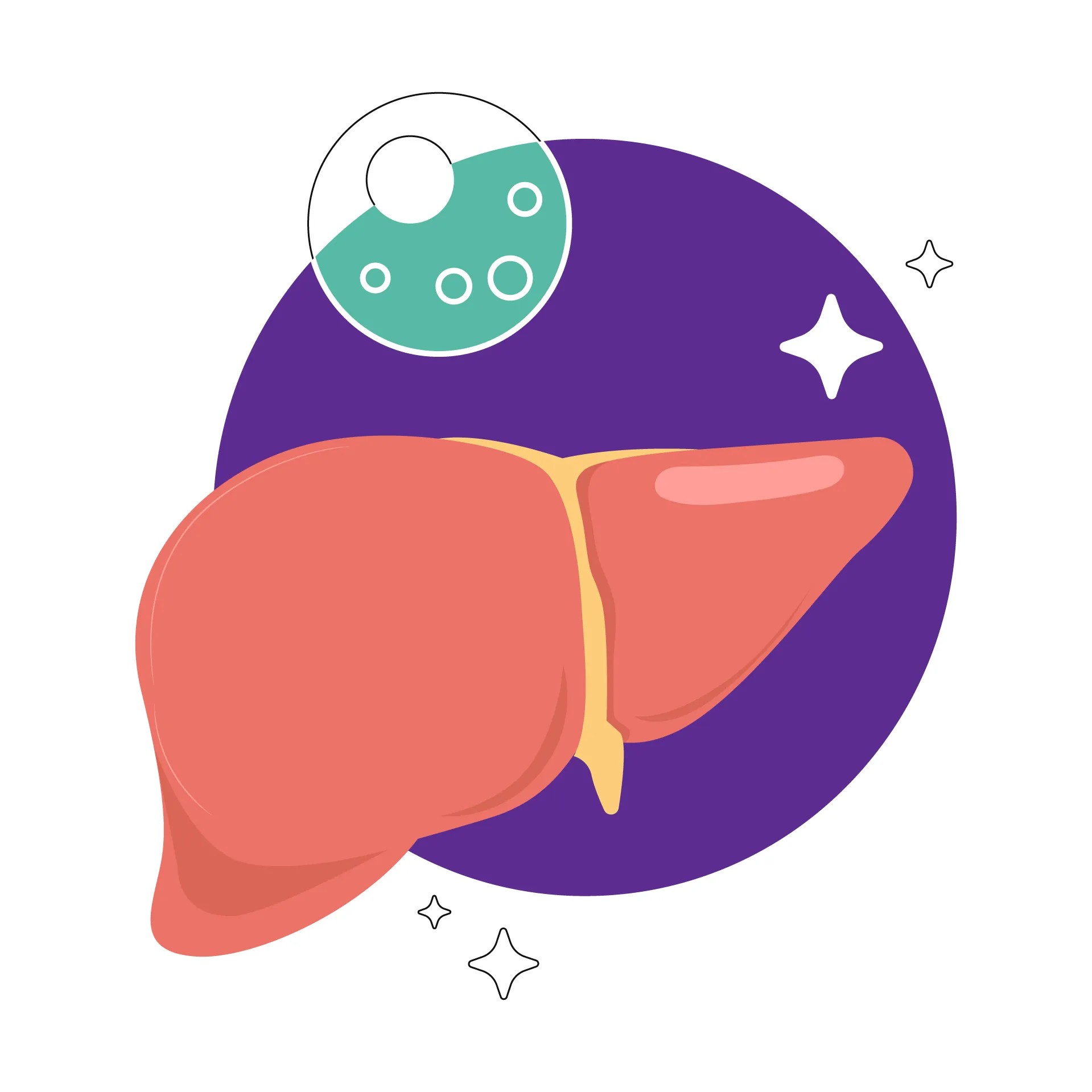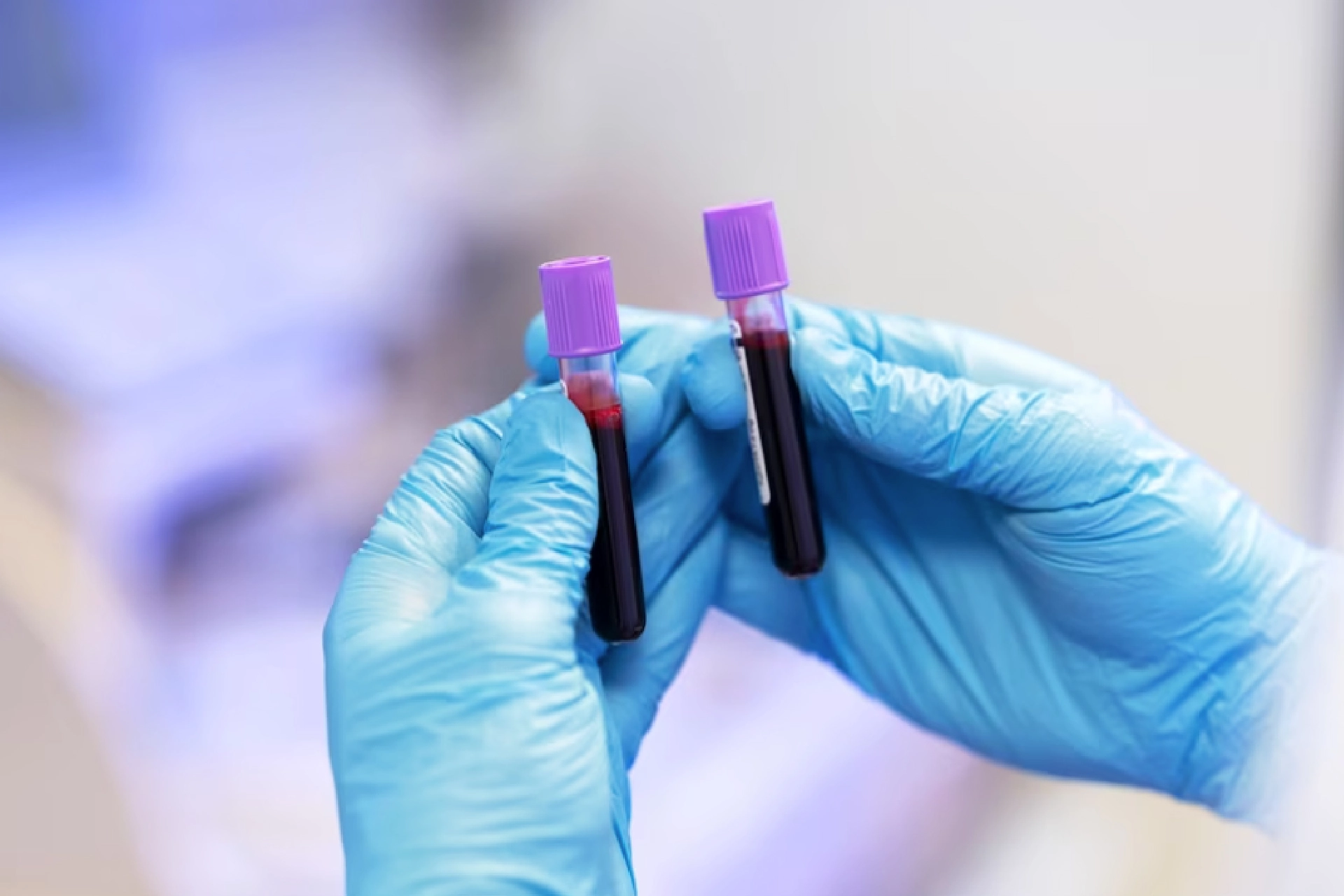Health Tests | 6 min read
Gamma-Glutamyl Transferase (GGT) Test: Purpose, Normal Range
Medically reviewed by
Table of Content
Synopsis
The gamma-glutamyl transferase test records the GGT in your blood. Get the gamma-glutamyl transferase, GGT test, to check for liver damage. Doctors prescribe it when you show symptoms like abdomen pain.
Key Takeaways
- Gamma-glutamyl transferase test helps the doctor asses if your liver’s healthy
- High levels in gamma glutamyl transferase blood test indicate liver damage
- Gamma glutamyl transferase, GGT test cannot help identify the cause of damage
The gamma-glutamyl transferase test, GGT test, is a blood test that checks your liver health. Gamma-glutamyl transferase test looks for the presence of gamma-glutamyl transferase in your blood. GGT is an enzyme that your liver produces, but if there’s any damage to the organ, it may be found in your blood. While the presence of GGT in low quantities may be normal, high levels point towards damage to the bile ducts or liver disease.
The GGT enzyme is essential for the proper function of the liver as it helps the organ absorb toxins and drugs. The enzyme also helps with the movement of other molecules in your body. GGT is also found in other organs apart from the liver. This includes your kidneys, spleen, gallbladder, and pancreas. Read on to understand more about the gamma-glutamyl transferase blood test.
Why is the Gamma-Glutamyl Transferase Test Done?
As mentioned, when GGT is detected in a blood test, it indicates liver damage. As a result, your doctor may tell you to get a gamma glutamyl transferase blood test if you show symptoms of liver damage or liver disease. Common signs that are indicative of this include the following:
- Pain in the abdomen
- Fatigue or loss of appetite
- Changed color of urine or feces
- Vomiting or nausea
Apart from this, your doctor may also tell you to get a gamma-glutamyl transferase test to check whether your bile ducts are healthy and free from blockage. This test can also help the doctor diagnose a liver condition. Other than this, your doctor may use this test as means to check if you have an alcohol problem and monitor the progress of your treatment program.
Additional Read: Apolipoprotein-B Test
What is the Normal Range of GGT?
Since GGT is present throughout the body, your doctor will expect a minimal detection of GGT in your blood when the gamma-glutamyl transferase test is done. The presence of GGT becomes a matter of concern only when the levels are well above the normal range. Generally, it is normal for adults to have GGT levels that range between 5-40 IU/L [1]. You should remember that your normal GGT levels may vary depending on your gender and age. Generally, women have a higher GGT level than men, and the GGT normal range goes up as you age.
How is the Gamma-Glutamyl Transferase Test Done?
Gamma glutamyl transferase, GGT test is a simple blood test that is carried out just like any other blood test by drawing blood from your vein. Once the sample vial is sent for analysis, you can expect the results in a few days. Remember that it is normal for you to experience pain or some bleeding at the place where the blood was drawn. However, if it persists or you notice anything unusual, contact your doctor.
What do the Results of the GGT Test Mean?
Raised levels of GGT in the result of your gamma glutamyl transferase test primarily suggest that a health condition may be damaging your liver. Problems in your liver can be the result of many things such as an infection, health condition, unhealthy lifestyle habits, or medication.
Keep in mind that the gamma-glutamyl transferase blood test cannot help the doctor identify the exact cause of your liver damage. It can only help identify whether something is worsening your liver health. The higher the GGT level, the greater may be the damage. To identify the exact cause of liver damage, your doctor may ask you to take a few more tests.
Your doctor may also compare the results of your gamma glutamyl transferase test with other lab tests. Generally, it is compared with an ALP lab test. The comparison helps your doctor understand whether liver disease is causing the damage or a bone condition. High levels of ALP and high GGT mean that it is a liver disease, whereas high ALP and low GGT indicate a bone condition.
What can Cause High Levels of GGT in Blood?
High levels of GGT in your gamma glutamyl transferase test results may be a result of a number of conditions. These may include the following [2]:
- Blockage in the bile duct (cholestasis)
- Scarred liver
- Tumor or cancer
- Pancreatic cancer
- Hepatitis
- Congestive heart failure
- Diabetes
- Dead liver tissue because of improper blood flow
- Excess alcohol consumption
- Fatty liver disease (non-alcoholic)
While assessing the cause of liver damage, the doctor will not just consider the results of your gamma-glutamyl transferase and GGT test but also other things such as your medical history, current or past medication, family history, gender, and age.
Additional Read: What is Thyroid Stimulating Hormone Test (TSH)
How can GGT Levels be Brought Down to a Normal Level?
One of the most effective methods to bring down your GGT levels is to treat conditions that cause the high levels. Since high levels of GGT can be a result of bad lifestyle choices, you can work towards adopting healthier choices. This includes quitting and lowering the consumption of alcohol or cigarettes. Apart from that, you can try making diet changes such as reducing how much red meat you eat, increasing your intake of vegetables and fruits, and more. You should also make sure that you do not lead a sedentary lifestyle and stay active while avoiding extreme exposure to pollution and harmful chemicals for better liver health.
Given the role GGT plays in assessing your liver health, it is important to get this lab test done. When combined with other liver function and health tests, it can help your doctor accurately identify the cause of your problems. Early detection of any health condition can help improve your recovery by enabling you to get timely treatment.
If you notice any symptoms of liver disease or other health conditions, consult with a doctor. Book an online or in-clinic appointment to consult with experienced doctors on Bajaj Finserv Health. You can also book a full body test or other lab tests on this platform and get discounts too. Your sample collection will be done conveniently from home, and you will get the results in a few days.
You can also consider the Complete Health Solution plans available on the platform to put your health first. Along with a high sum insured, you also get other benefits such as free preventive health checkups, free unlimited teleconsultations, and network discounts. This way, you get to safeguard your finances with insurance and your health with the help of experienced doctors!
References
- https://www.ucsfhealth.org/medical-tests/gamma-glutamyl-transferase-(ggt)-blood-test
- https://my.clevelandclinic.org/health/diagnostics/22055-gamma-glutamyl-transferase-ggt-test#results-and-follow-up
Disclaimer
Please note that this article is solely meant for informational purposes and Bajaj Finserv Health Limited (“BFHL”) does not shoulder any responsibility of the views/advice/information expressed/given by the writer/reviewer/originator. This article should not be considered as a substitute for any medical advice, diagnosis or treatment. Always consult with your trusted physician/qualified healthcare professional to evaluate your medical condition. The above article has been reviewed by a qualified doctor and BFHL is not responsible for any damages for any information or services provided by any third party.




